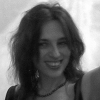Set Theory in the United Kingdom is a new joint research group in set theory funded by the London Mathematical Society (Scheme 3) with members at the Universities of Bristol, Cambridge, East Anglia, Leeds, Oxford, Warwick and University College London.
A preliminary meeting (STUK 0) of the joint research group was held at the Royal Society in London on 7 November 2018. The meeting in Cambridge on 16 February 2019 will be the group's first full meeting.
Meetings in the same series:
| Date | Main speakers | ||
|---|---|---|---|
| STUK 0 | London | 7 November 2018 | coordination meeting |
| STUK 1 | Cambridge | 16 February 2019 | Mirna Džamonja (Norwich & Paris) Joel Hamkins (Oxford) |
| STUK 2 | Bristol | 16 February 2019 | Victoria Gitman (New York NY) Andrew Brooke-Taylor (Leeds) |
| STUK 3 | Leeds | 3 October 2019 | David Asperó (Norwich) Heike Mildenberger (Freiburg) |
| STUK 4 | Oxford | 14 December 2019 | Carolin Antos (Konstanz) Philipp Schlicht (Bristol) |
| STUK 5 | London | 11 February 2020 |
Tom Leinster (Edinburgh) Benedikt Löwe (Amsterdam, Hamburg, & Cambridge) |
| STUK 6 | Cambridge | 4 June 2020 (tentative) |
The meeting will take place in Meeting Room 13 at the Centre for Mathematical Sciences (CMS) in Cambridge (a useful map of the pavilions and meeting rooms at the CMS). There will be two talks and ample time for informal presentations of work-in-progress and open problems.

|
Mirna Džamonja (Norwich & Paris) Strong logics in set theory and search for singular compactness | 
| ||||||||||||||||||||||
|
Joel David Hamkins (Oxford) Forcing as a computational process | ||||||||||||||||||||||||
|
Abstract. In the world of infinite cardinals, combinatorial properties of singular cardinals are somewhat special. This is especially visible by the fact that they often exhibit a compactness behaviour, such as in Shelah's singular compactness theorem or pcf theorem. The cardinal \(\aleph_0\) is also very special, often because of the compactness. An important example is the compactness of the first order logic. Therefore it is natural to ask if there is a compact logic associated to singular cardinals, a question that we explore. This talk reports on results in progress obtained jointly with Jouko Väänänen. |
Abstract. We investigate the senses in which set-theoretic forcing can be seen as a computational process on the models of set theory. Given an oracle for the atomic or elementary diagram of a model of set theory \(\langle M,\in^M\rangle\), for example, we explain senses in which one may compute \(M\)-generic filters \(G\subset P\in M\) and the corresponding forcing extensions \(M[G]\). Meanwhile, no such computational process is functorial, for there must always be isomorphic alternative presentations of the same model of set theory \(M\) that lead by the computational process to non-isomorphic forcing extensions \(M[G]\not\cong M[G']\). Indeed, there is no Borel function providing generic filters that is functorial in this sense. This is joint work with Russell Miller and Kameryn Williams. | |||||||||||||||||||||||
| ||||||||||||||||||||||||
